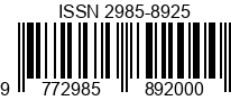Analisis Penggunaan Narkotika dengan Alasan Kesehatan dalam Perspektif Hukum Pidana Islam dan Undang-Undang No 35 Tahun 2009 Tentang Narkotika
DOI:
https://doi.org/10.54298/tarunalaw.v1i01.64Keywords:
Narcotics, Health, Islamic LawAbstract
In Islamic teachings, there are five main objectives of Islamic law that appear. One of the five goals is maintenance of the mind. Therefore, in order to maintain the purity of the mind, it is forbidden to consume food or drink that damages the health of the human mind. Like narcotics, methamphetamine, and all kinds of other illegal drugs. However, this law does not apply to people who are sick and can only recover by consuming the drug. In other words, illegal drugs may be consumed when needed in order to achieve one's health. One of the uses of Narcotics for health reasons in Indonesia is legalized as contained in the law of the Republic of Indonesia Number 35 of 2009 concerning Narcotics, especially in article 7. Treatment is a step that is always related to society, where people always need treatment. Drugs containing narcotics are drugs that require special supervision from the pharmacy and are supervised by the government so that their use and circulation are not misused. The definition of narcotics is a substance or drug derived from a plant, both synthetic and semi-synthetic, which can cause a decrease or change in consciousness, relieve pain, and even cause dependence on the user. However, it is different for medical needs, narcotics can still be used. However, the use of narcotics in Indonesia must refer to the rules set by the Ministry of Health.
References
Al Jurjawi, Ali Ahmad. 1992. Hikmah Al Ta Syr Î` Wa Falsafatuhu. Tt. Dâr Al-Fikr.
Al Shabuni, Muhammad Ali. 1987. Tafsir Ayâ T Ahkâm. Tt. Dâr Al-Fikr.
Al-Jaziri, Abd. Al Rahman. 2003. Al-Fiqh ‘Alâ Madzâhib Al-`Arba'ah Beirut: Dâr Al Fikr.
Az Zuhaili, Wahbah. 1988. Al-Fiq Al-Islami Wa Adillah. Beirut: Dâr Al Fikr.
Azwar, Saifuddin. 2000. Metode Penelitian. Yogyakarta : Pustaka Pelajar.
Bin Ahmad Al Wâhidi Al Naisâburî, Abi Hasan Ali. 1414 H. 1994, M. Asbâb Al Nuz Ûl. Beirut: Dâr Al-Fikr.
Bukhori, Imam. 1987. Shahih bukhori. Beirut: Dâr Al Fikr.
Departemen Agama. 1994. Al-qur’an dan Terjemahan. Semarang: Gravindo Persada.
Gultum, Maidin. 2010. Perlindungan Hukum terhadap Anak Dalam Sistim Peradilan Pidana di Indonesia. Bandung: PT Refika Atama.
Hakim, Arif. 2004. Bahaya Narkotika. Bandung: Cinabe Indah.
Kharisudin. 2005. Inabah. Surabaya : Bina Ilmu.
Khudari Bik, Muhammad. 1988. Ushûl AL-Fiqh. Beirut: Dâr Al Fikr.
Legowo. 2008. Menangulagi Bahaya Narkoba. Jakarta: PT Raja Grafindo.
Lintogareng, Jerol Vandrixton. 2013. Analisa Keyakinan Hakim Dalam Pengambilan Keputusan Perkara Pidana Di Pengadilan. Lex Cremen.
Sabiq, Sayid. 1981. Fiqh Al-Sunnah. Beirut: Dār Al Fikr.
Syamsuddin, Aziz. 2011. Tindak Pidana Khusus. Jakarta: Sinar Grafika.
Undang-Undang Republik Indonesia Nomor 35 Tahun 2009 Tentang Narkotika.
Downloads
Published
How to Cite
Issue
Section
License
Copyright (c) 2023 Nasiri Nasiri, Abdullah Isa

This work is licensed under a Creative Commons Attribution-ShareAlike 4.0 International License.
Authors who publish with this journal agree to the following terms:
- Authors retain copyright and grant the journal right of first publication with the work simultaneously licensed under a Creative Commons Attribution-ShareAlike that allows others to share the work with an acknowledgement of the work's authorship and initial publication in this journal.
- Authors are able to enter into separate, additional contractual arrangements for the non-exclusive distribution of the journal's published version of the work (e.g., post it to an institutional repository or publish it in a book), with an acknowledgement of its initial publication in this journal.
- Authors are permitted and encouraged to post their work online (e.g., in institutional repositories or on their website) prior to and during the submission process, as it can lead to productive exchanges, as well as earlier and greater citation of published work (See The Effect of Open Access).














